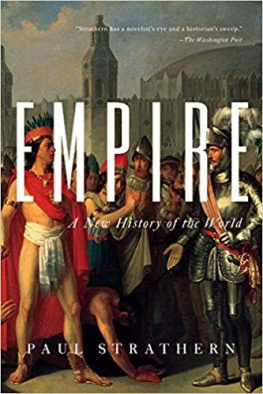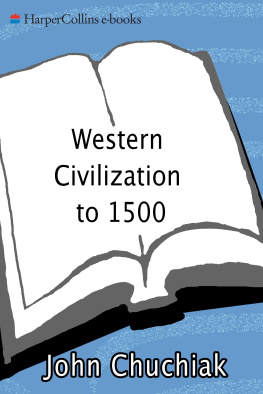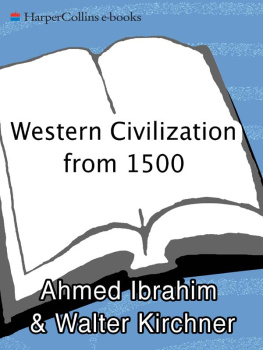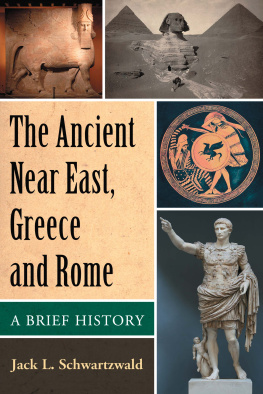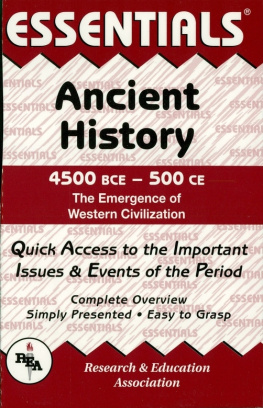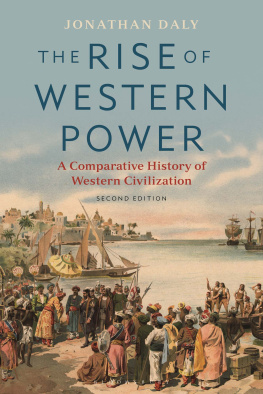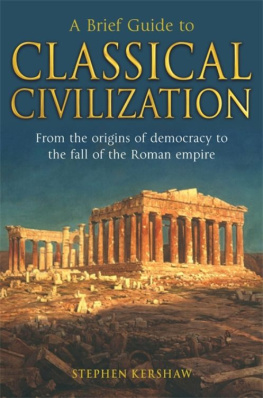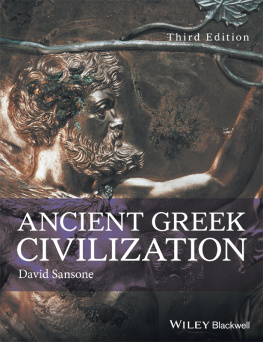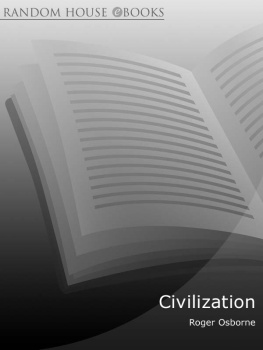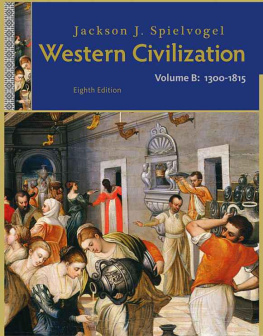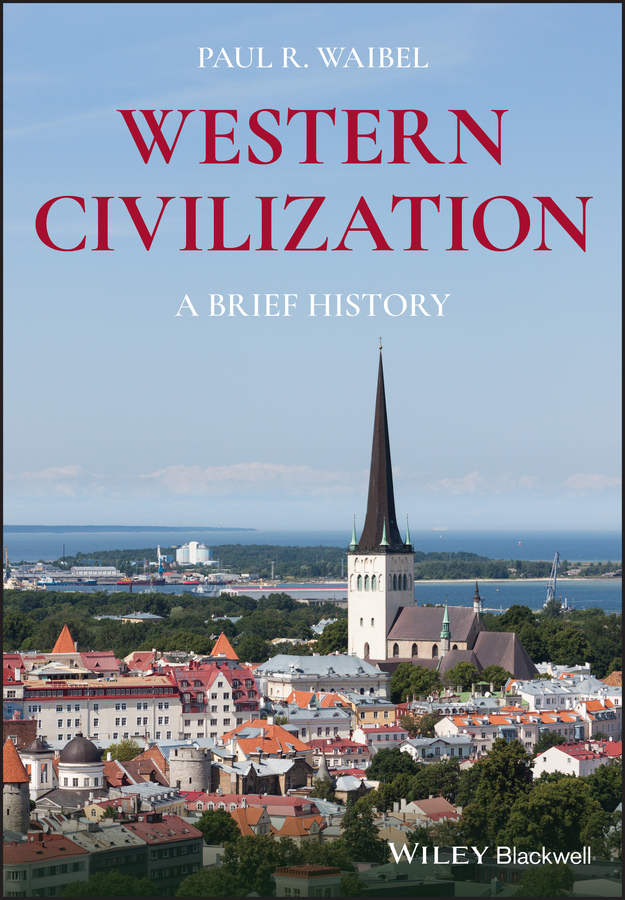
Table of Contents
List of Illustrations
- Chapter 1
- Chapter 2
- Chapter 3
- Chapter 4
- Chapter 5
- Chapter 6
- Chapter 7
- Chapter 8
- Chapter 9
- Chapter 10
- Chapter 11
- Chapter 12
- Chapter 13
- Chapter 14
- Chapter 15
- Chapter 16
- Chapter 17
- Chapter 18
- Chapter 19
- Chapter 20
Guide
Pages
Western Civilization
A Brief History
Paul R. Waibel

This edition first published 2020
2020 John Wiley & Sons, Inc.
All rights reserved. No part of this publication may be reproduced, stored in a retrieval system, or transmitted, in any form or by any means, electronic, mechanical, photocopying, recording or otherwise, except as permitted by law. Advice on how to obtain permission to reuse material from this title is available at http://www.wiley.com/go/permissions.
The right of Paul R. Waibel to be identified as the author of this work has been asserted in accordance with law.
Registered Office
John Wiley & Sons, Inc., 111 River Street, Hoboken, NJ 07030, USA
Editorial Office
111 River Street, Hoboken, NJ 07030, USA
For details of our global editorial offices, customer services, and more information about Wiley products visit us at www.wiley.com.
Wiley also publishes its books in a variety of electronic formats and by printondemand. Some content that appears in standard print versions of this book may not be available in other formats.
Limit of Liability/Disclaimer of Warranty
While the publisher and authors have used their best efforts in preparing this work, they make no representations or warranties with respect to the accuracy or completeness of the contents of this work and specifically disclaim all warranties, including without limitation any implied warranties of merchantability or fitness for a particular purpose. No warranty may be created or extended by sales representatives, written sales materials or promotional statements for this work. The fact that an organization, website, or product is referred to in this work as a citation and/or potential source of further information does not mean that the publisher and authors endorse the information or services the organization, website, or product may provide or recommendations it may make. This work is sold with the understanding that the publisher is not engaged in rendering professional services. The advice and strategies contained herein may not be suitable for your situation. You should consult with a specialist where appropriate. Further, readers should be aware that websites listed in this work may have changed or disappeared between when this work was written and when it is read. Neither the publisher nor authors shall be liable for any loss of profit or any other commercial damages, including but not limited to special, incidental, consequential, or other damages.
Library of Congress CataloginginPublication Data
Name: Waibel, Paul R., author.
Title: Western civilization : a brief history / Paul R. Waibel.
Description: First edition. | Hoboken : John Wiley & Sons, Inc. 2020. | Includes index.
Identifiers: LCCN 2019046600 (print) | LCCN 2019046601 (ebook) | ISBN 9781119160717 (paperback) | ISBN 9781119160779 (adobe pdf) | ISBN 9781119160786 (epub)
Subjects: LCSH: Civilization, WesternTextbooks.
Classification: LCC CB245 .W255 2020 (print) | LCC CB245 (ebook) | DDC 909/.09821dc23
LC record available at https://lccn.loc.gov/2019046600
LC ebook record available at https://lccn.loc.gov/2019046601
Cover Design: Wiley
Cover Image: R.Tsubin/Getty Images
Preface
I began teaching survey courses in the history of Western Civilization in 1975 as a graduate teaching assistant at West Virginia University. From then until my retirement from teaching in 2016, I taught survey courses in Western Civilization and World Civilization, as well as upper level courses in everything from ancient history to the history of the twentieth century. During my 40 years of teaching at four colleges and universities, I watched higher education in the United States undergo radical change. Today's students represent a wide range of academic preparation.
The growth of what is commonly referred to as nontraditional education has required a rethinking of how core courses are taught and what can be required from the students enrolled in them. Such courses are often marketed as a means for working adults to complete a degree once started, but interrupted. Frequently, adult students need to take a semester or two of history survey to meet a core requirement. Hence, courses in Western Civilization or World History are offered. Students may be required to attend evening classes that meet once a week for six to eight weeks, during which an entire semester's work is completed. At one point in my career, I was assigned to teach a onesemester course in Western Civilization in a weeks as part of a nontraditional adult program. Increasingly, nontraditional courses are taught online, either live or prerecorded. Adult students taking these condensed courses, while at the same time trying to juggle work, family, and other of life's daily demands usually have very little time to spend reading the traditional survey history textbook.
Taking all of the above into consideration, I set for myself the task of writing a Western Civilization text that could be used in the traditional oncampus course, or the nontraditional classes. I wanted the text to be written in an interesting and engaging style, that is to say, I wanted it to be more than a chronological list of dates and names of dead people. What Theodore Roosevelt said of writing in general, I think is especially important in writing a history text for today's student population: Writings are useless, unless they are read, and they cannot be read unless they are readable. A history text should not be a dry academic piling up of facts. Historian Barbara W. Tuchman described herself as a storyteller, a narrator, who deals in true stories, not fiction. She also noted that writing readable history is not easy: One has to sit down on that chair and think and transform thought into readable, conservative, interesting sentences that both make sense and make the reader turn the page.
When writing this and earlier books, I tried, however imperfectly to follow Ms. Tuchman's advice and example. With that in mind, I chose to emphasize topics that students I taught over the many past years found interesting and likely to stimulate class discussion. I am well aware that there is no such thing as true objectivity in teaching or writing history. Merely selecting what historical events and personalities to include in a brief history destroys any such pretense. E.H. Carr called attention to this handicap of every historian in his classic What is History? The belief in a hard core of historical facts existing independently of the historian, wrote Carr, is a preposterous fallacy, but one that is very hard to eradicate.
Being aware that my own understanding and interpretation of historical events will invariably find its way into my writing to some degree, I nevertheless tried to be faithful to the facts. However, I do have a theme, or organizing idea, around which my story of the rise of Western Civilization is constructed, and it is a rather traditional one.
Next page

